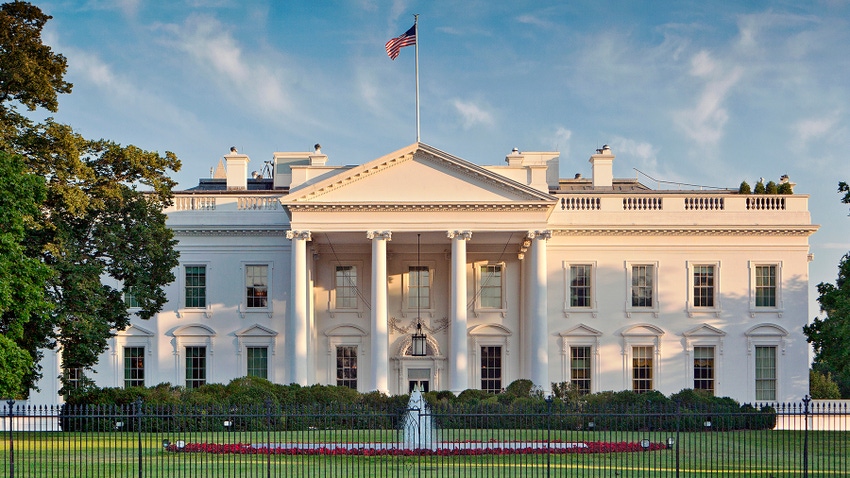Biden administration pushes for WIC funding
Vilsack says program could face a $1 billion shortfall by the end of 2024.

Biden administration officials are calling on Congress to fully fund the Special Supplemental Nutrition Program for Women, Children and Infants, commonly known as WIC. According to them, failure to do so could result in millions of people in need losing access to health and nutrition assistance.
WIC is a program that assists low-income and nutritionally at-risk women during and after pregnancy. It also serves infants and children under the age of five. In addition to food, recipients receive nutrition education, counseling, health screenings, and referrals to other services. USDA estimates that 53% of all U.S. infants receive some form of WIC assistance.
Unlike federal entitlement programs, which are required by law to assist all eligible individuals, Congress sets WIC’s funding on an annual basis. The November budget deal lawmakers brokered to avoid a government shutdown kept WIC funding at 2023 levels through March. However, the program now has approximately 400,000 more participants than it did a year ago.
Approximately 6.7 million people currently receive benefits. More than half of them are children. During a Thursday call with reporters, White House Domestic Policy Council Director Neera Tanden said fully funding WIC should be a “no-brainer.” She notes that over the past 25 years, the program has enjoyed broad bipartisan support. If Congressional Republicans fail to increase WIC funding in any budget agreement, she foresees states being forced to implement waiting lists or take other measures.
“Two million parents and young children could be turned away from WIC by September 2024 if Congress fails to provide full funding,” Tanden says. “That is simply unacceptable. Depriving eligible families of WIC would worsen hunger and hardship. No one deserves that, particularly our children.”
In 2021 during the pandemic, Congress temporarily increased WIC spending, allowing recipients to purchase fruits and vegetables. Those additional benefits were re-authorized in 2022 and 2023. Now, some Republicans say it’s time to cut back. They say government spending is already too high, posing increasing risks to the economy and national security.
Last summer, House Appropriations Committee member Andy Harris, R- Md., helped broker a proposed USDA funding bill with significant cuts to WIC. He’s not buying the administration’s doom and gloom predictions.
“We obviously all agree that WIC is an important program—that is why I am pleased we funded it at the same $6 billion level as the Democrats when they set funding levels for the program last year,” Harris said on Thursday. “If more funding is now needed, we will take that into consideration. But in the meantime, there is no emergency since the USDA recently transferred $500 million in the WIC account, and it also has a $150 million contingency fund the Secretary of Agriculture can access.”
USDA’s projections reportedly include the $500 million transfer to WIC that Agriculture Secretary Tom Vilsack authorized last year. While the $150 million contingency fund is still available, it is not nearly enough to offset the projected WIC funding shortfall. Also, there is a fear within USDA that depleting the contingency fund would put WIC even more at risk since congress would then need to authorize additional money to replenish it.
According to Vilsack, Congress has directed USDA and states to continue serving all eligible recipients by spending funds at a faster rate than they were allocated for. However, lawmakers have not authorized anything to cover the program once current funding runs out. If funding levels aren’t raised to meet the growing number of recipients, he says the program will incur a $1 billion shortfall before the end of the year. That amount is equal to the estimated cost of providing six months of benefits to all pregnant woman and infants participating in WIC.
“Given the size of the funding shortfall, it’s likely that waiting list would stretch across all participating categories, affecting both new applicants and mothers, babies and young children enrolled in the program who are up for renewal benefits,” Vilsack said. “Now Congress has the ability to resolve this quickly and simply by acting now to fully fund the program.”
Lawmakers are facing a Jan. 19 deadline to pass four new apportions packages to fund multiple federal agencies, including USDA. At this point, momentum seems to be trending toward another extension, though that is far from certain. Where that would leave future WIC funding remains unclear.
About the Author(s)
You May Also Like




.png?width=300&auto=webp&quality=80&disable=upscale)
